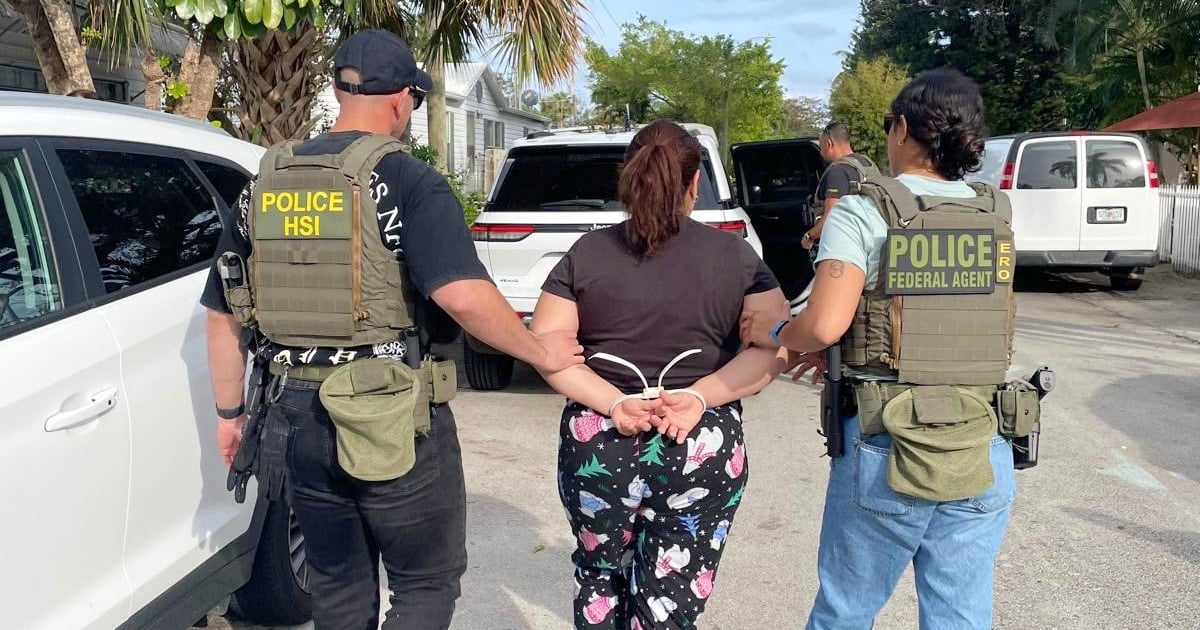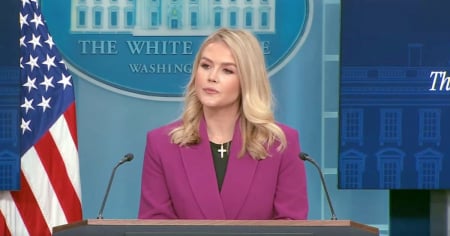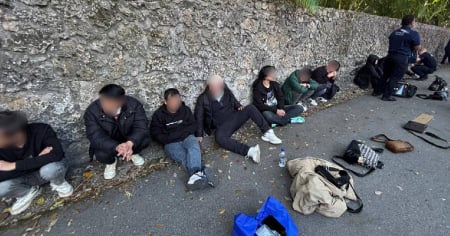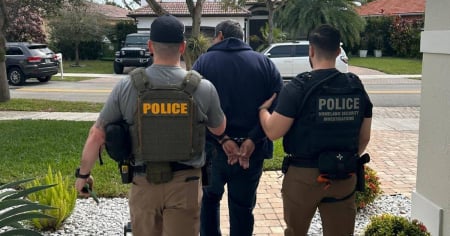
Related videos:
In a legislative session marked by tension and controversy, the Florida Senate and House of Representatives approved on Tuesday the bill known as the "Trump Act," a measure aimed at strengthening state policies against illegal immigration.
The law, promoted by Republican leaders, aims to strengthen cooperation between local law enforcement and federal immigration agencies, increase penalties for undocumented immigrants who commit crimes, and eliminate access to discounted state tuition for undocumented students who attended high school in Florida.
Republican leaders in the legislature have framed the “Trump Act” as a support for President Donald Trump's agenda.
However, Florida Governor Ron DeSantis, who at one point aspired to the Republican presidential nomination, has expressed his disagreement with the measure, calling it "weak and diluted."
“We must have the strongest immigration law enforcement in the nation. We cannot be weak”, stated DeSantis on the social network X (formerly Twitter), assuring that he will veto the bill.
The conflict between the legislature and the governor has created an unusual power struggle within the Republican Party in the state.
The law, promoted by the Speaker of the House, Daniel Pérez, and the Senate President, Ben Albritton, allocates $500 million to strengthen the coordination between state and local authorities and federal immigration agencies. It also increases criminal penalties for undocumented immigrants who commit crimes in the United States.
Impact on Undocumented Students
One of the most controversial aspects of the "Trump Act" is the elimination of access to discounted state tuition for undocumented students who attended high school in Florida.
This policy, in effect since 2014 after being enacted by then-Governor Rick Scott, has allowed more than 6,500 undocumented students to access higher education in the state.
Orlando Democratic state senator Carlos Guillermo Smith harshly criticized the measure: “How does the repeal of our state tuition law contribute to the fight against violent criminals who pose a threat to public safety? It doesn’t. It feels petty. It feels wrong.”
Republican representative Juan Porras defended the measure, arguing that it is necessary to protect state resources. “We have a duty as a legislature to protect the funds of the people who pay taxes in this country. We have many 'dreamers,' but we also have many citizen students who are trying to pay for their education,” he stated.
Toughening of sanctions for undocumented immigrants
The "Trump Act" also includes harsher measures against undocumented immigrants who commit crimes in Florida. If they are found guilty of a capital crime, such as murder or sexual assault of a minor, the death penalty will be mandatory.
Furthermore, those undocumented immigrants who are members of a gang and commit crimes will receive the maximum penalty allowed by law.
Democrats have criticized the rapid approval process of the bill, arguing that some of its provisions are "cruel."
They have emphasized the need to protect schools and places of worship from potential raids, as the bill requires government employees to cooperate with federal immigration enforcement.
The future of the bill
Despite the veto announced by Governor DeSantis, the state legislature could override it if it manages to gather the necessary support. The measure was passed in both chambers with a significant majority, although there were some dissenting voices within the Republican Party itself.
Republican representative Mike Caruso, whose district includes former President Trump’s Mar-a-Lago estate, voted against the measure, deeming it insufficient.
"This bill is weak. It will not stop illegal immigration," he declared.
Meanwhile, the Trump administration has supported the bill, urging state legislators to focus on strengthening immigration law enforcement without yielding to external pressures.
Republicans in the legislature have sought to balance the implementation of stricter immigration measures with the need to maintain support from Latino voters in Florida, a crucial segment in state and national elections.
With the veto pen ready in DeSantis's hands, the key question now is whether Republican lawmakers will have the will and the necessary number of votes to override his decision and turn the "Trump Act" into law.
Filed under:






